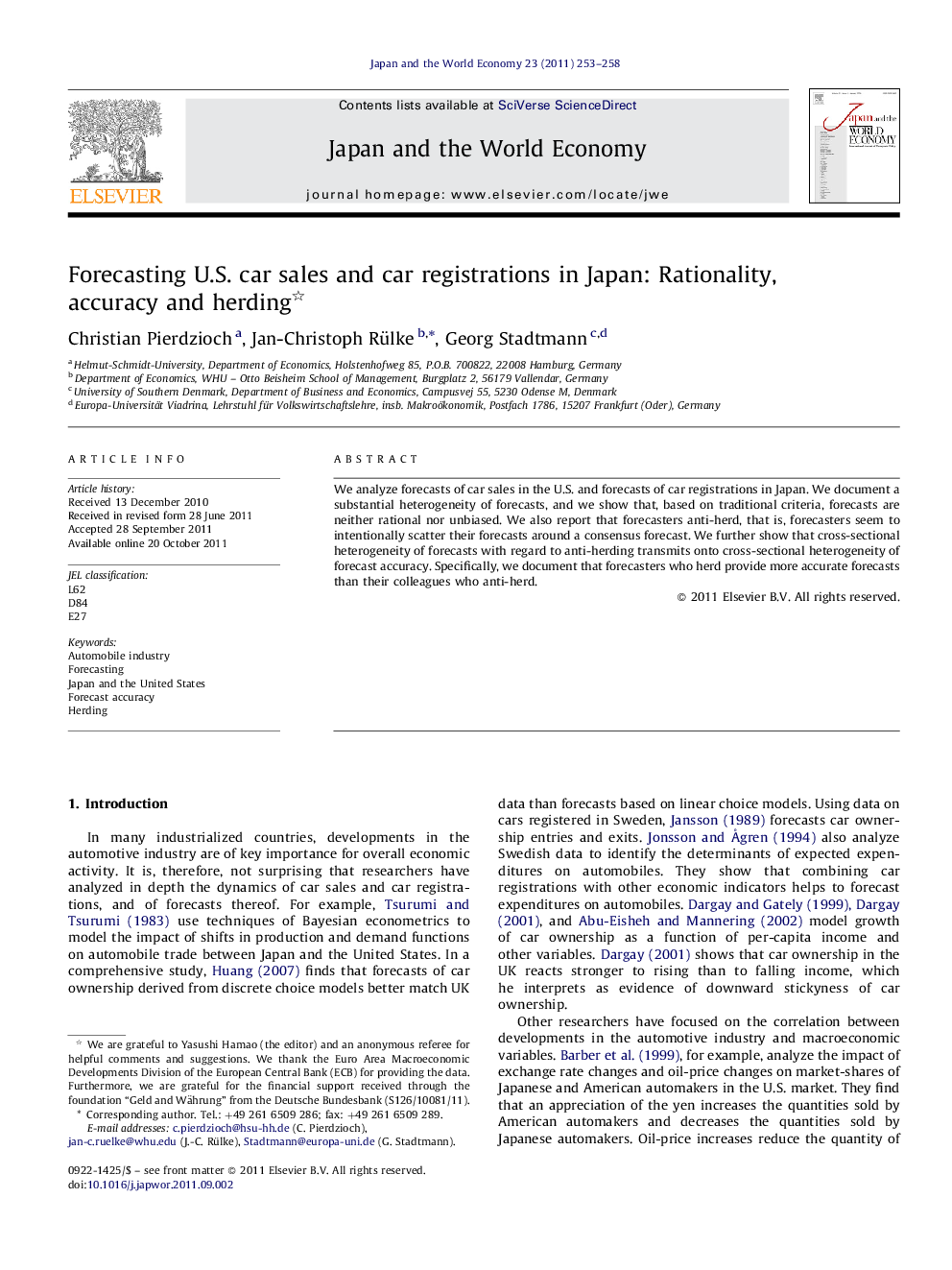| Article ID | Journal | Published Year | Pages | File Type |
|---|---|---|---|---|
| 5086203 | Japan and the World Economy | 2011 | 6 Pages |
We analyze forecasts of car sales in the U.S. and forecasts of car registrations in Japan. We document a substantial heterogeneity of forecasts, and we show that, based on traditional criteria, forecasts are neither rational nor unbiased. We also report that forecasters anti-herd, that is, forecasters seem to intentionally scatter their forecasts around a consensus forecast. We further show that cross-sectional heterogeneity of forecasts with regard to anti-herding transmits onto cross-sectional heterogeneity of forecast accuracy. Specifically, we document that forecasters who herd provide more accurate forecasts than their colleagues who anti-herd.
⺠Is the first study analyzing private sector forecasts in the automobile industry. ⺠Uses more than 12,000 forecasts of car sales and registrations in the U.S. and Japan to show that expectations in the automobile sector are heterogenous. ⺠Finds that the automobile forecasters anti-herd, i.e. they intentionally scatter their forecasts around the consensus forecast. ⺠Shows that anti-herding corrrelates with forecast accuracy. ⺠Contributes substantially to the literature as theoretical models using automobile forecasts should account for forecaster anti-herding.
